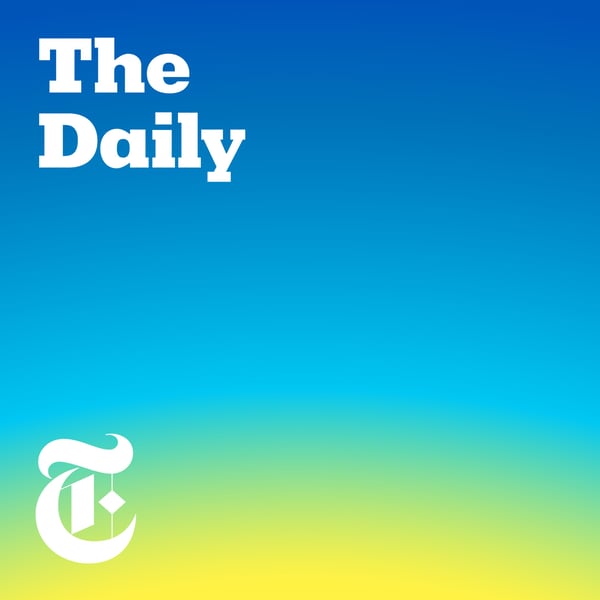The Sunday Read: ‘I Had a Chance to Travel Anywhere. Why Did I Pick Spokane?’
The Daily
The New York Times
4.4 • 102.8K Ratings
🗓️ 3 October 2021
⏱️ 31 minutes
🧾️ Download transcript
Summary
Transcript
Click on a timestamp to play from that location
| 0:00.0 | Hi, I'm John Noelle. I'm a writer at large for the New York Times magazine and I live |
| 0:22.8 | on Bainbridge Island outside Seattle. I'm going to read an essay I wrote for the magazine's |
| 0:27.7 | recent voyages issue about a trip I took late the summer. By the time I pulled into Spokane, |
| 0:37.0 | I was furious of myself for coming to Spokane. I'd had a bad pandemic, though not nearly |
| 0:43.2 | bad enough that I feel entitled to complain about it and definitely not to complain about |
| 0:47.8 | it publicly. In the most important ways, my family was fine, healthy, housed, employed, |
| 0:55.6 | and buffered from the crisis by circumstance, privilege, and luck. Relatively speaking, |
| 1:01.2 | we worked squizzedly comfortable and safe, literally on an island, the semi-rural suburb |
| 1:06.6 | of Seattle where we live. We had space, we had trees, until recently the case counts were |
| 1:13.2 | low. Even so, at the onset of the pandemic, my wife and I were both working and our daughters |
| 1:19.5 | were 11 and 6. While there were many moments of laughter and togetherness, life in our |
| 1:24.4 | household also felt precarious and strained. Beneath the warm, opioid glow of family |
| 1:30.1 | moving night, there seemed to be the potential for some darker disorderliness and pain. |
| 1:35.5 | And so, I gradually put my career into an induced coma to prioritize our kids. It was a luxury |
| 1:42.6 | that felt like a necessity, but it carried its own complications too. As our family's |
| 1:48.8 | collective hard time eased, I began having my own personal hard time. The details aren't |
| 1:54.3 | important. Let's just say, I felt as if I were moldering in place. Time passed, summer |
| 2:00.3 | came. I was slow to experience any of the combustive euphoria of the reopening while it lasted. |
| 2:06.6 | I didn't fly anywhere, didn't eat inside a restaurant, didn't see a movie, scarcely |
| 2:11.6 | set foot in a city, seldom managed to leave my small town. Then Delta swept in, and |
| 2:18.0 | gazing out, I felt like people were being reckless, and I was primed to take their |
| 2:22.0 | recklessness very personally, on the half of my one still unvaccinated child. But I couldn't |
... |
Please login to see the full transcript.
Disclaimer: The podcast and artwork embedded on this page are from The New York Times, and are the property of its owner and not affiliated with or endorsed by Tapesearch.
Generated transcripts are the property of The New York Times and are distributed freely under the Fair Use doctrine. Transcripts generated by Tapesearch are not guaranteed to be accurate.
Copyright © Tapesearch 2025.

